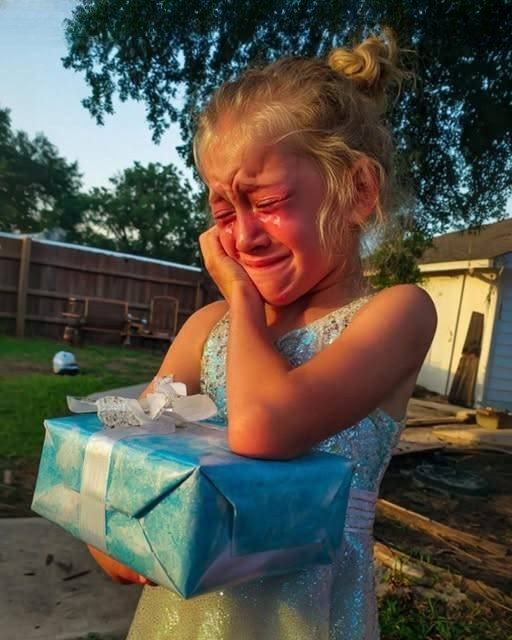My mother-in-law told my 6-year-old daughter she wasn’t family, kicking her out of a birthday party. Her cruelty sparked a lesson she’d never forget.
When I met Ryan at 28, I was a single mom to 2-year-old Mia, my world. On our second date, I brought her along—partly because I couldn’t afford a sitter, but mostly to see if he’d embrace us both. Most men fumbled, offering forced smiles. Ryan knelt, praised Mia’s star-patterned shoes, and spent half an hour gluing sparkles onto her drawing. My heart raced, seeing a future that felt whole.
Two years later, we married. Mia, in a daisy crown, walked the aisle gripping our hands, calling Ryan her “kinda-daddy” mid-reception, cupcake in mouth. Everyone laughed; Ryan cried. On her fifth birthday, he adopted her at a backyard party glowing with fairy lights. “Can I call you Daddy now?” she whispered. He kissed her forehead. “Forever, my girl.”
I thought love would conquer all, that our bond would smooth any edges. But Ryan’s mother, Linda, had a chill that lingered. She never spoke harshly but ignored Mia—cards addressed to “Ryan and Lisa,” no questions about Mia’s school, no praise for her handmade gifts. Once, over my casserole, she said, “You’ve adapted fast, raising a kid alone.” Ryan squeezed my hand. “Give her time.”
Time didn’t help. At my nephew Liam’s 7th birthday party, hosted by Ryan’s brother, Mia picked a special gift—a rare superhero card set, wrapped in silver paper. In her green dress, she brushed her hair thrice, asking, “Will Liam like it?” We kissed her goodbye, promising cupcakes later, and left for a quick lunch.
My phone buzzed. Mia’s voice quivered: “Mommy, can you get me? Grandma said I’m not family and made me wait outside.” My blood ran cold. We raced to the party. Mia stood by the gate, clutching her gift, tears streaking her dirt-smudged face. Ryan scooped her up; she sobbed into his shoulder.
I stormed inside, past streamers and laughter. Linda sat calmly, sipping tea. “Why is my daughter outside?” I demanded, voice low. She didn’t flinch. “Mia’s not family,” she said flatly. My sister-in-law, Jenna, mumbled about keeping the peace for Liam. I glared. “You let a child cry alone for cake? Shame on you.” I walked out before my anger erupted.
At home, we spoiled Mia—ice cream, her favorite movie, cuddles until she slept. I vowed she’d never feel unwanted again. For Ryan’s birthday, we hosted a picnic, inviting only “those who see Mia as family.” Linda texted, “Am I excluded?” I replied, “Your rule, Linda—not everyone’s family.” She didn’t respond.
The picnic was magic—blankets, lanterns, laughter. Liam and his dad, Tom, came, Jenna absent. Liam hugged Mia. “I told Grandma she was wrong. You’re like my sister.” Mia, beaming, gave him her saved gift. “It’s your birthday,” she said. Liam’s eyes widened. “You still got me this?”
I posted a photo of them laughing together, captioned: “Family is heart, not blood.” Weeks later, Linda called. Mia, eating strawberries, answered. “Hi, Grandma. I forgive you, but don’t do that again. It hurt.” She handed me the phone. Ryan later said, “I told Mom she’d lose us if she didn’t accept Mia fully.”
Linda’s changed—sends cards, calls, baked Mia’s birthday cake with blue frosting. I’m wary, but Mia, brushing her doll’s hair, said, “Grandma’s trying.” Maybe she is. But Mia will never doubt her place—not in our home, our family, or the story we’re building for her.
